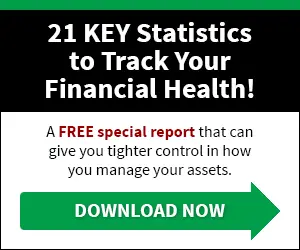The après-COVID party is in full swing. Travel is booming. Restaurants are full. Real estate is on a roll. Even used cars are a hot commodity. In 2021, the Dow Jones Industrial Average (DJIA) recently topped 35,000 and other major stock hit all-time highs.
But an uninvited guest has crashed the party. Her name is Delta, and she’s out to spoil the fun. The Delta variant of the COVID-19 virus has spread rapidly around the globe. It now accounts for the overwhelming majority of new cases in the U.S. Its high rate of transmission has brought about a new wave of infections across the country. As of August 18, the number of new Covid-19 cases had risen to levels not seen since February. Ditto hospitalizations. Although the overall caseload remains well below levels seen at the peak of the pandemic, infections have skyrocketed in a number of areas, and some states are seeing record numbers of new infections.1
Critical Reaction
The first to react to the Delta wave was, unsurprisingly, Wall Street. Stocks fell sharply on July 19 following the announcement of pandemic stats, with the DJIA tumbling over 700 points, its biggest decline in almost 10 months. Prices quickly recovered and the index went on to post new highs, although volatility has since tested those highs.
More concerning is what effects the upsurge of infections might have on the economy. Even before the rebound in COVID cases, shortages of labor, computer chips, and other goods were holding back a full recovery. A new surge could bring about renewed supply chain delays. The reopening of schools and offices could be postponed or even cancelled. Already, Apple decided to delay the planned reopening of its sprawling Cupertino campus. Many other companies have followed suit.
More importantly, restrictions are being reimposed across the country on dining, entertainment, and travel. Although lockdowns and full closures seem unlikely at this stage, the uptick in cases has brought about a return to enforced social distancing, mask mandates, and restrictions on public gatherings in many areas — all of which impacts consumer confidence and demand.
Is the Party Over?
With over 70% of U.S. adults now vaccinated,2 no one expects the economic fallout to approach last year’s recession. But the Delta wave is likely to affect different areas differently.
In some southern and Midwestern states, new vaccinations have plateaued and rates remain stubbornly low, even after a recent Delta-inspired uptick. Unless they improve further, higher infection and hospitalization rates could derail economic recoveries in those areas.
State and local restrictions will also play a role. The CDC tightened its mask guidance in late July, and many areas have reinstated some restrictions. Los Angeles County and San Francisco in California have reinstituted mask mandates and other restrictions, and towns and cities in other states have followed suit. What’s more, a growing number of government jurisdictions and businesses now require workers to show proof of COVID-19 vaccination or submit to regular testing. How all these moves will impact the economy is unknown, but they are likely to have some effect on consumer spending and confidence.
Delta’s long-term impact on the economy will ultimately depend on how widely it spreads, vaccination rates, and how effective the vaccines are in preventing serious illness. To date, the vast majority of new cases, hospitalizations, and deaths have been with unvaccinated people. But breakout cases are growing, and soaring infection rates could spur the emergence of ever-new variants, which could eventually become more resistant to existing vaccines and boosters. That’s a sobering thought, but one to keep in mind as you plan for an uncertain future.
Notes
1New York Times, Coronavirus in the U.S.: Latest Map and Case Count, July 26, 2021.
2CDC, COVID Data Tracker, August 19, 2021. Represents adults 18 or older that have received at least one dose.
This material was prepared by LPL Financial. This material is for general information only and is not intended to provide specific advice or recommendations for any individual. There is no assurance that they views or strategies discussed are suitable for all investors or will yield positive outcomes. Investing involves risks including possible loss of principal. Any economic forecasts set forth may not develop as predicted and are subject to change. All performance referenced is historical and is no guarantee of future results. All indexes are unmanaged and cannot be invested into directly.
This information is not intended to be a substitute for specific individualized tax advice. We suggest that you discuss your specific tax issues with a qualified tax advisor.
All company names noted herin are for educational purposes only, and not an indication of trading intent or a solicitation of their products or services. LPL Financial doesn’t provide research on individual equities.



